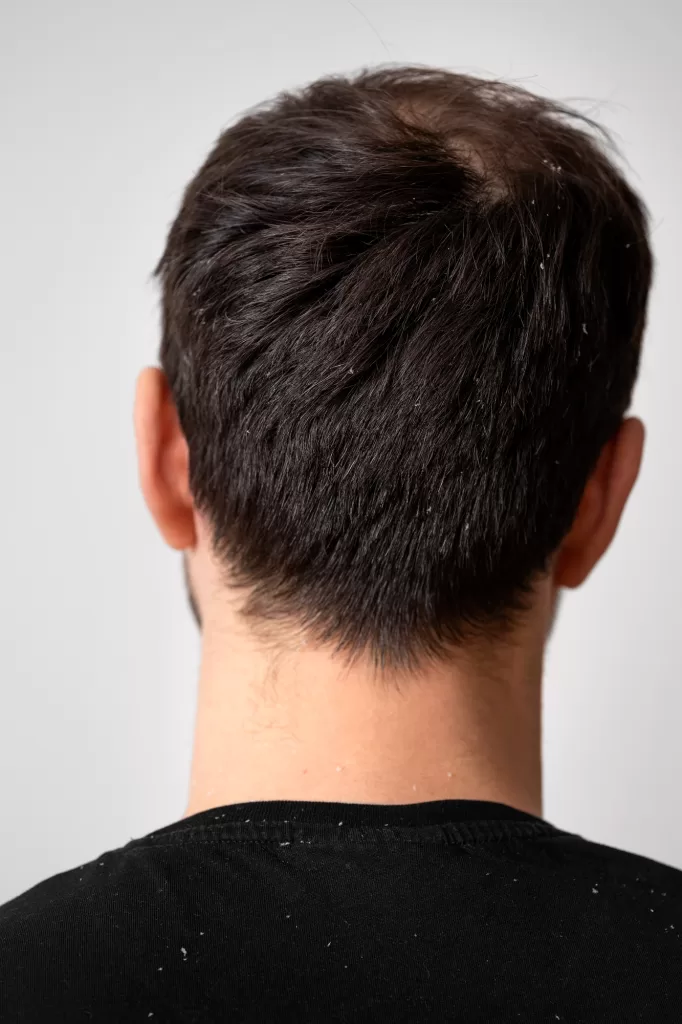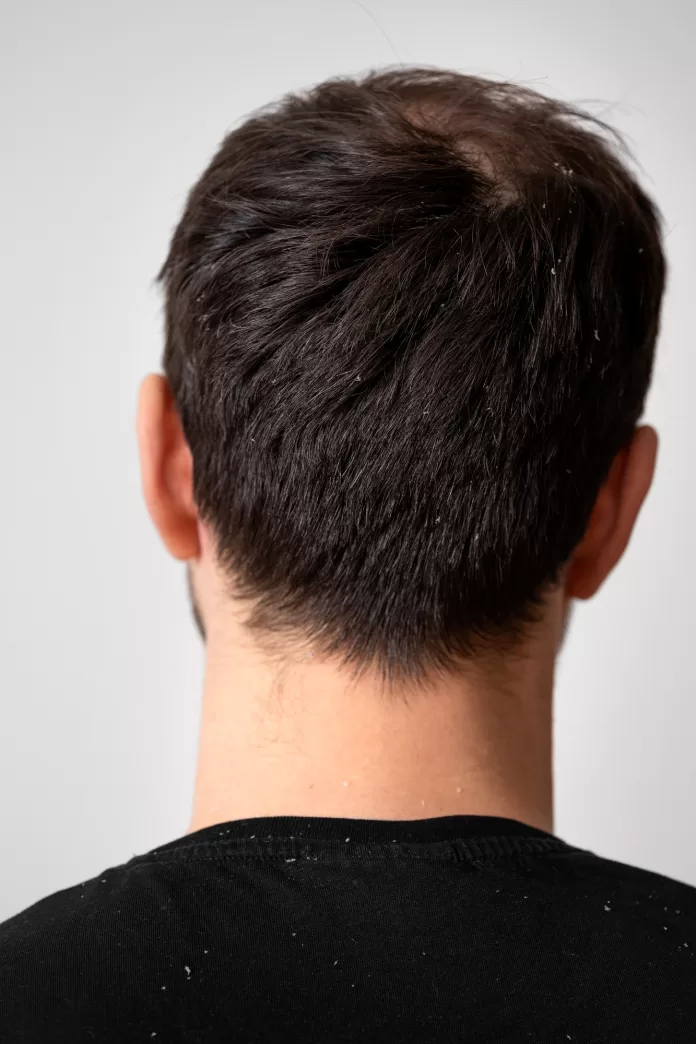
Introduction to Dandruff
Do you find yourself frequently brushing off tiny white flakes from your shoulders? If so, you’re not alone. Dandruff is one of the most common scalp issues affecting millions of people worldwide. But what exactly is dandruff, and why does it occur?
What Is Dandruff?
Dandruff is a chronic condition characterized by an itchy scalp and flakiness of the skin. It is primarily caused by the shedding of dead skin cells from the scalp at an accelerated rate. While it’s not contagious or serious, dandruff can be embarrassing and sometimes difficult to treat.
Common Causes of Dandruff
Understanding what causes dandruff is essential for effective management. Here are some of the most common culprits:
- Seborrheic Dermatitis: This is the leading cause of dandruff. It occurs when the scalp becomes oily and irritated, resulting in the shedding of skin cells.
- Malassezia: This is a yeast-like fungus that naturally resides on the scalp. For some, it can become overactive, feeding on the oils secreted by hair follicles and causing irritation.
- Dry Skin: Especially in winter, some individuals may experience dandruff due to dry skin.
- Sensitivity to Hair Products: Certain hair care products can irritate the scalp, leading to dandruff.
- Other Skin Conditions: Psoriasis and eczema can also contribute to dandruff.
How Dandruff Affects Scalp Health
While dandruff itself is not harmful, the accompanying symptoms, such as itchiness and irritation, can lead to scratching. This can result in further scalp issues, including inflammation and even potential hair loss.
Signs and Symptoms of Dandruff
Recognizing the signs and symptoms of dandruff can help you address the issue promptly.
How to Identify Dandruff
- Flakes on Scalp and Shoulders: The most telling sign of dandruff is the presence of white flakes.
- Itchy Scalp: Persistent itchiness is often associated with dandruff.
- Red, Flaky Patches: These may appear on your scalp, face, and other oily areas of the body.
- Dry or Greasy Skin Patches: Depending on the underlying cause, the skin on the scalp might be overly dry or oily.
Myths vs. Facts About Dandruff
There are many misconceptions about dandruff that can lead to ineffective treatments or unnecessary embarrassment.
Debunking Common Misconceptions
- Myth 1: Dandruff is caused by poor hygiene.
- Fact: While infrequent washing can exacerbate dandruff, it is not the root cause.
- Myth 2: Dandruff only occurs in adults.
- Fact: Dandruff can affect anyone, from infants (cradle cap) to the elderly.
- Myth 3: Dandruff will go away on its own.
- Fact: Without treatment, dandruff can persist or worsen.
- Myth 4: Dandruff is contagious.
- Fact: Dandruff cannot be “caught” from someone else.
Understanding these myths and facts allows you to approach dandruff treatment with more clarity and confidence.
Effective Home Remedies for Dandruff
Before reaching for medicated shampoos, you might want to try some natural remedies that have been known to alleviate dandruff symptoms.
Natural Treatments to Try at Home
- Tea Tree Oil: Known for its antifungal properties, applying a few drops of tea tree oil mixed with a carrier oil can reduce dandruff.
- Apple Cider Vinegar: Its acidity can help balance the pH of the scalp, inhibiting the growth of dandruff-causing fungi.
- Aloe Vera: It can calm the scalp and provide relief from itching.
- Coconut Oil: Moisturizes the scalp while its antifungal properties help reduce dandruff.
- Baking Soda: Acts as a gentle exfoliant to remove dandruff flakes.
The Importance of a Healthy Scalp
Achieving and maintaining a healthy scalp goes beyond treating dandruff.
How Overall Health and Lifestyle Affect Dandruff
- Diet: A balanced diet rich in zinc, B vitamins, and certain fats can help prevent dandruff.
- Stress Management: High stress levels can exacerbate dandruff. Regular exercise, meditation, and yoga can help manage stress.
- Hydration: Drinking enough water keeps the skin, including the scalp, hydrated.
- Sleep: A good night’s rest can improve overall skin health, including that of your scalp.
Professional Treatments
If home remedies don’t do the trick, there are numerous professional treatments available.
Overview of Medicated Shampoos and Other Treatments
- Medicated Shampoos: Look for shampoos containing zinc pyrithione, salicylic acid, selenium sulfide, ketoconazole, or coal tar.
- Scalp Treatments: These can include serums or oils that you leave on the scalp overnight.
- Prescription Treatments: In severe cases, a dermatologist might prescribe cortisone-based lotions or oral antifungal medications.
Preventing Dandruff
Preventing dandruff requires a proactive approach and consistent scalp care.
Tips for Maintaining a Healthy Scalp and Preventing Dandruff
- Regular Shampooing: Use a gentle shampoo to regularly cleanse the scalp of excess oil and skin cells.
- Use of Conditioner: Keep the scalp moisturized to avoid dryness.
- Avoid Hair Products That Cause Irritation: Test products before use to ensure they don’t irritate your skin.
- Protect Scalp from Extreme Temperatures: Wear a hat in harsh weather conditions to protect your scalp.
- Maintain a Balanced Diet and Lifestyle.
When to Seek Medical Advice
Sometimes, dandruff can be more than just a nuisance.
Signs That Your Dandruff May Need Professional Attention
- Persistent Symptoms: If dandruff persists despite over-the-counter treatments.
- Severe Itchiness and Redness: Could indicate an underlying skin condition.
- Hair Loss: Excessive scratching could lead to hair loss.
- Signs of Infection: Such as crusting or swelling of the scalp.
Consult a dermatologist if you experience these symptoms for tailored advice and treatment.
Conclusion and Call to Action
Dealing with dandruff can be a frustrating experience, but with the right knowledge and tools, you can keep it under control. From understanding the causes and debunking myths to exploring remedies and professional treatments, there are numerous ways to achieve a healthier scalp.
Take Action Today
Don’t wait for dandruff to become a burden. Start by adopting healthy scalp habits and trying some of the remedies mentioned above. If you’re looking for personalized advice or more advanced treatments, don’t hesitate to reach out to a healthcare professional.
For more tips on maintaining a healthy lifestyle, visit our website Healthfunda.net and become part of a community that prioritizes well-being.


